サーマルカメラLepton3.5とUSB接続アダプタPureThermal 2 を手に入れたのでRaspberry Pi4でC言語を使い温度を読み出すプログラムを作成しました。
PureThermal UVC Capture Examplesを参考に作成しました。グラフィックにはEGGX / ProCALLを使用しています。
#include <stdio.h>
#include <stdlib.h>
#include <string.h>
#include <fcntl.h>
#include <errno.h>
#include <sys/ioctl.h>
#include <sys/types.h>
#include <sys/time.h>
#include <sys/mman.h>
#include <linux/videodev2.h>
#include <libv4l2.h>
#include <eggx.h>
#define CLEAR(x) memset(&(x), 0, sizeof(x))
struct buffer {
void *start;
size_t length;
};
static void xioctl(int fh, int request, void *arg)
{
int r;
do {
r = v4l2_ioctl(fh, request, arg);
} while (r == -1 && ((errno == EINTR) || (errno == EAGAIN)));
if (r == -1) {
fprintf(stderr, "error %d, %s\n", errno, strerror(errno));
exit(EXIT_FAILURE);
}
}
double ktoc(double val,int radiometryLowGain)
{
if (radiometryLowGain) {
return (val - 2731.5) / 10.0; //Lowゲイン
} else {
return (val - 27315.0) / 100.0; //Hightゲイン デフォルト
}
}
int main(int argc, char **argv)
{
struct v4l2_format fmt;
struct v4l2_buffer buf;
struct v4l2_requestbuffers req;
enum v4l2_buf_type type;
fd_set fds;
struct timeval tv;
int r, fd = -1;
unsigned int i, n_buffers;
char *dev_name = "/dev/video0";
struct buffer *buffers;
fd = v4l2_open(dev_name, O_RDWR | O_NONBLOCK, 0);
if (fd < 0) {
perror("Cannot open device");
exit(EXIT_FAILURE);
}
CLEAR(fmt);
fmt.type = V4L2_BUF_TYPE_VIDEO_CAPTURE;
fmt.fmt.pix.width = 160;
fmt.fmt.pix.height = 120;
fmt.fmt.pix.pixelformat = V4L2_PIX_FMT_Y16;
fmt.fmt.pix.field = V4L2_FIELD_NONE;
xioctl(fd, VIDIOC_S_FMT, &fmt);
if (fmt.fmt.pix.pixelformat != V4L2_PIX_FMT_Y16) {
printf("Libv4l didn't accept this format. Can't proceed.\n");
exit(EXIT_FAILURE);
}
if ((fmt.fmt.pix.width != 160) || (fmt.fmt.pix.height != 120)) {
printf("Warning: driver is sending image at %dx%d\n",
fmt.fmt.pix.width, fmt.fmt.pix.height);
}
CLEAR(req);
req.count = 2;
req.type = V4L2_BUF_TYPE_VIDEO_CAPTURE;
req.memory = V4L2_MEMORY_MMAP;
xioctl(fd, VIDIOC_REQBUFS, &req);
buffers = calloc(req.count, sizeof(*buffers));
for (n_buffers = 0; n_buffers < req.count; ++n_buffers) {
CLEAR(buf);
buf.type = V4L2_BUF_TYPE_VIDEO_CAPTURE;
buf.memory = V4L2_MEMORY_MMAP;
buf.index = n_buffers;
xioctl(fd, VIDIOC_QUERYBUF, &buf);
buffers[n_buffers].length = buf.length;
buffers[n_buffers].start = v4l2_mmap(NULL, buf.length,
PROT_READ | PROT_WRITE, MAP_SHARED,
fd, buf.m.offset);
if (MAP_FAILED == buffers[n_buffers].start) {
perror("mmap");
exit(EXIT_FAILURE);
}
}
for (i = 0; i < n_buffers; ++i) {
CLEAR(buf);
buf.type = V4L2_BUF_TYPE_VIDEO_CAPTURE;
buf.memory = V4L2_MEMORY_MMAP;
buf.index = i;
xioctl(fd, VIDIOC_QBUF, &buf);
}
type = V4L2_BUF_TYPE_VIDEO_CAPTURE;
xioctl(fd, VIDIOC_STREAMON, &type);
int win = gopen(160,120);
layer(win,0,1);
gsetnonblock(ENABLE);
for (;;) {
do {
FD_ZERO(&fds);
FD_SET(fd, &fds);
/* Timeout. */
tv.tv_sec = 2;
tv.tv_usec = 0;
r = select(fd + 1, &fds, NULL, NULL, &tv);
} while ((r == -1 && (errno = EINTR)));
if (r == -1) {
perror("select");
return errno;
}
CLEAR(buf);
buf.type = V4L2_BUF_TYPE_VIDEO_CAPTURE;
buf.memory = V4L2_MEMORY_MMAP;
xioctl(fd, VIDIOC_DQBUF, &buf);
for(int y=0;y<120;y++) {
for(int x=0;x<160;x++) {
int r,g,b;
unsigned int temp = *((uint16_t *)(buffers[buf.index].start+(160*y+x)*2)) ;
double t = ktoc(temp,0);//温度に変換
if(t<20) t=20; // 20℃〜40℃の間のみ可視化
if(t>40) t=40;
if(makecolor(DS9_B,20,40,t,&r,&g,&b)!=0) {
fprintf(stderr,"makecolor() over flow.\n");
exit(1);
}
newrgbcolor(win,r,g,b);
pset(win,x,120-1 - y);
}
}
copylayer(win,1,0);
xioctl(fd, VIDIOC_QBUF, &buf);
if(ggetch()>0) break;
}
type = V4L2_BUF_TYPE_VIDEO_CAPTURE;
xioctl(fd, VIDIOC_STREAMOFF, &type);
for (i = 0; i < n_buffers; ++i) {
v4l2_munmap(buffers[i].start, buffers[i].length);
}
v4l2_close(fd);
gclose(win);
return 0;
}コンパイル
$ sudo apt install libv4l-dev $ gcc -o view view.c -lv4l2 -leggx -lX11 -lm

参考










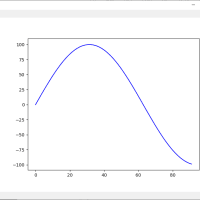
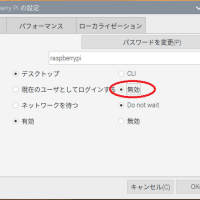
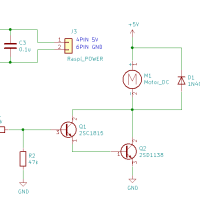
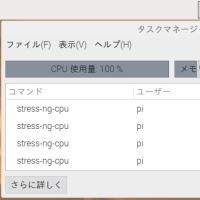
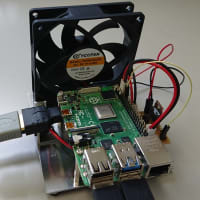
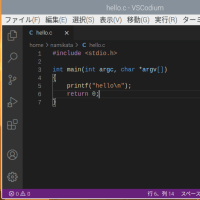
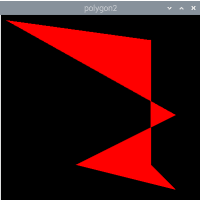
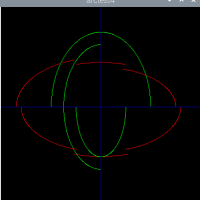
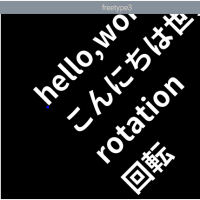
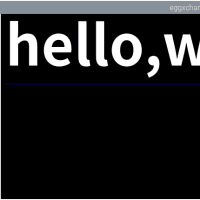
※コメント投稿者のブログIDはブログ作成者のみに通知されます